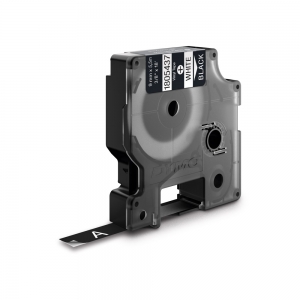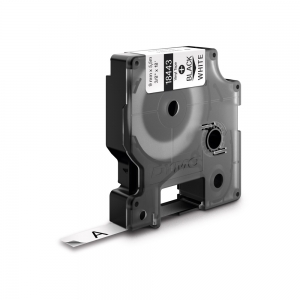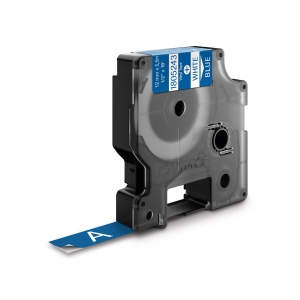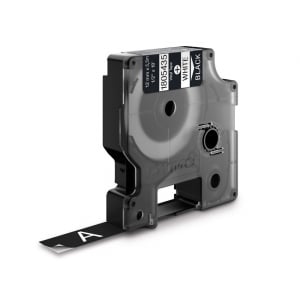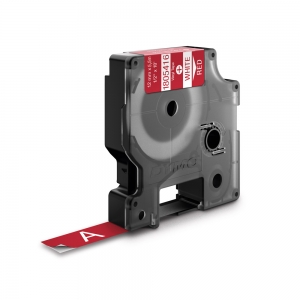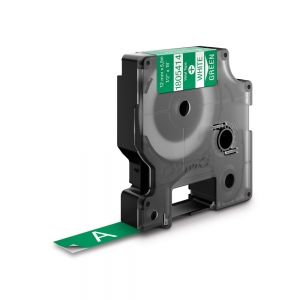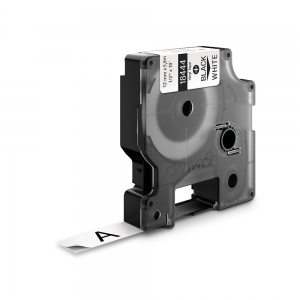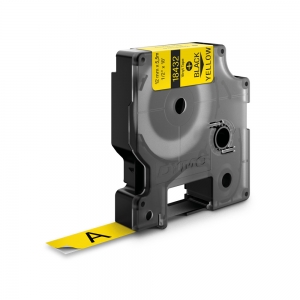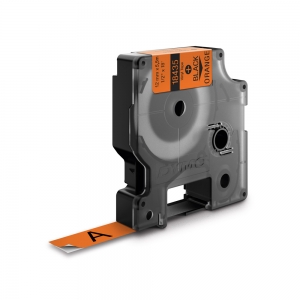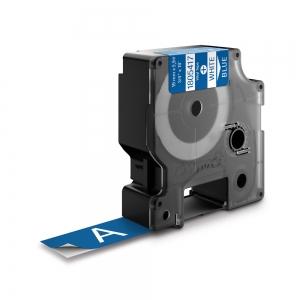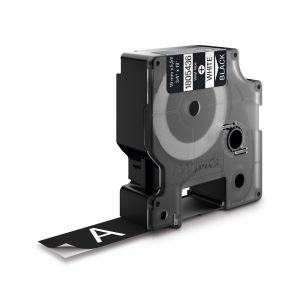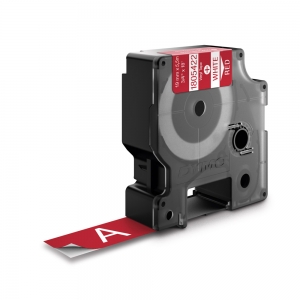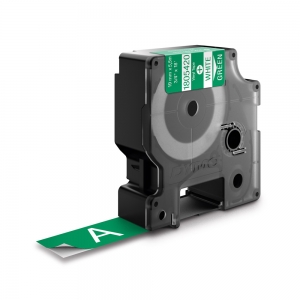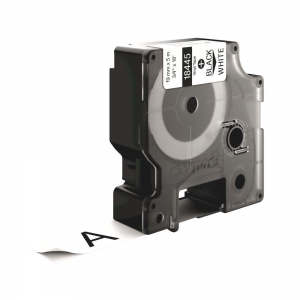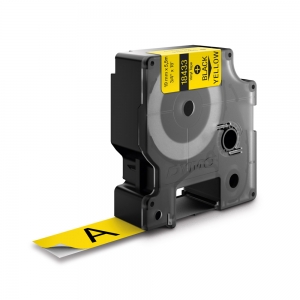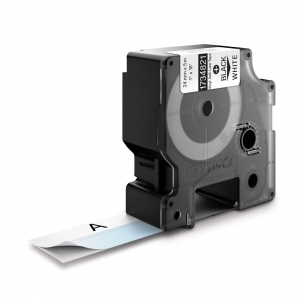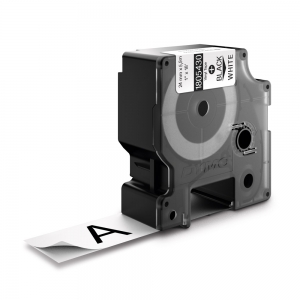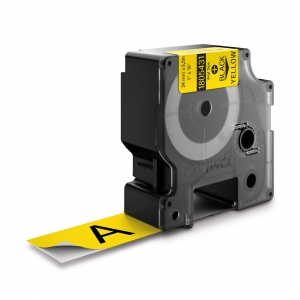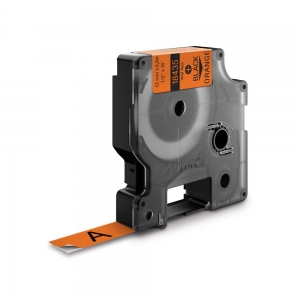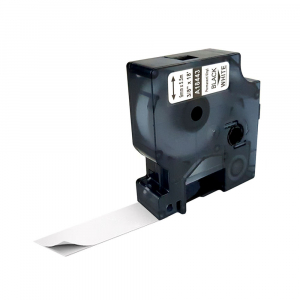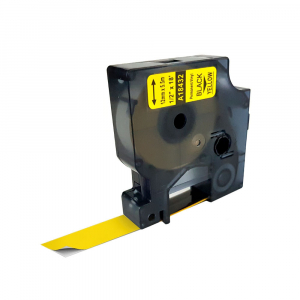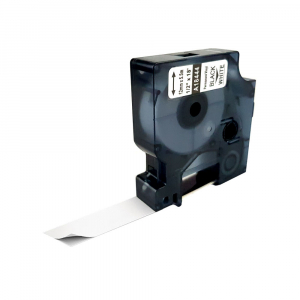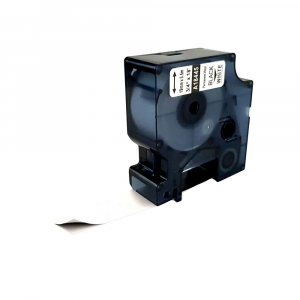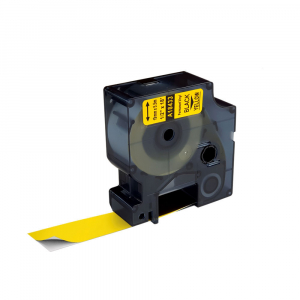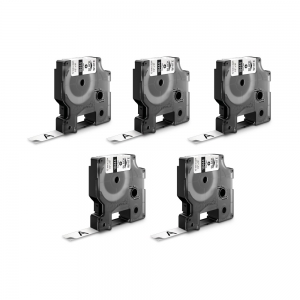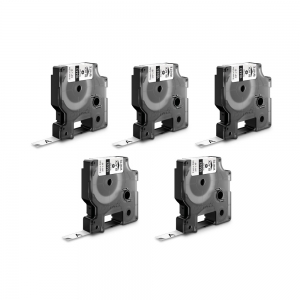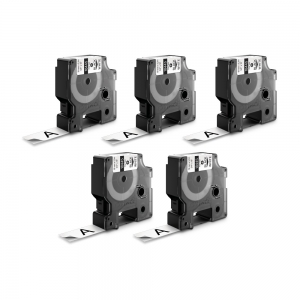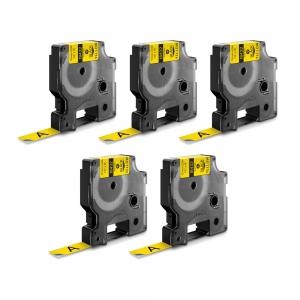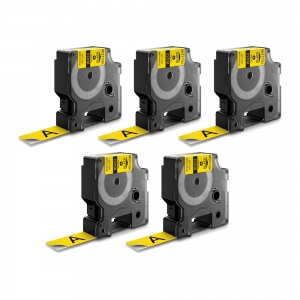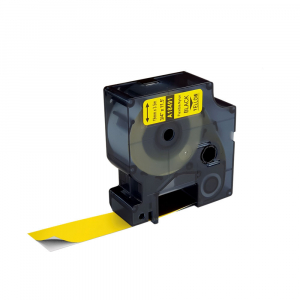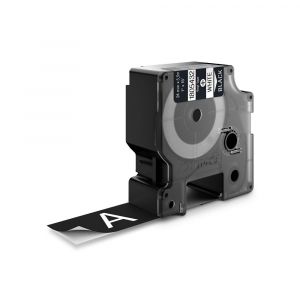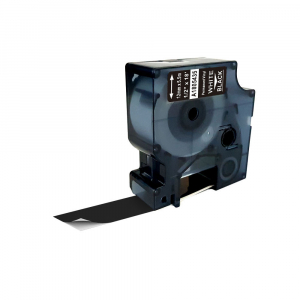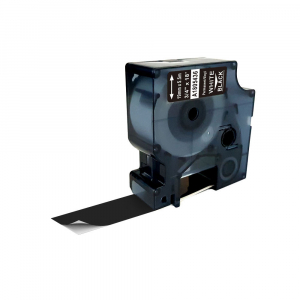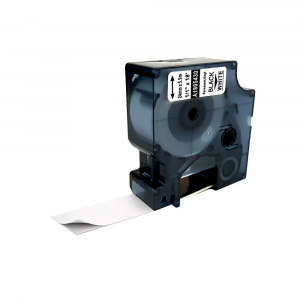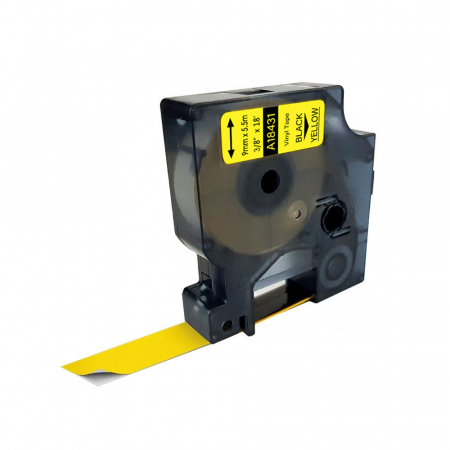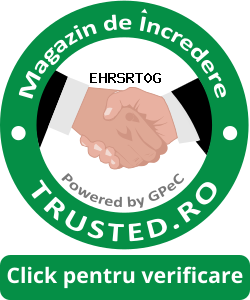Displayed products are delivered from stock. Offers are valid within the limit of available stock.
Industrial labeling tapes
How do you sign your work?
Put industrial labels!
Have you ever reached the handover phase of the project and realized that you did not put industrial labels that identify the wires and components in the electrical or control panel?
How did you get out of the mess? What did you use was the payment of the work delayed because of this?
You can easily avoid these unpleasant situations! It uses industrial labeling systems together with industrial labels.
Labeling is not expensive! In most cases, it represents less than 0.1% of the project value!!! The condition is not to forget to add them to the budget calculation.
Industrial labels are specially created to withstand extreme conditions, such as temperature variations, chemicals or UV rays.
Depending on the applications for which the tapes are used, they are made of various high quality materials and have very strong adhesive.
4 types of labels suitable for industrial labeling
Labeling machines or label printers are the easiest and fastest solution for obtaining suitable labels for industrial use and beyond.
If you are in a situation where you are surrounded by 100 cables and you have to remember where each one comes from, what it does and where it goes, you might get confused if you don't have the slightest help. That little help can even come from electronic labelers for industry.
The labels are made of several types of materials and can be used on several types of surfaces.
• Vinyl, self-laminating vinyl – universal applications, indoors, on flat or curved, smooth or textured surfaces, clean and dry, including cables and wires
• Polyester - recommended for flat, smooth, clean and dry surfaces, indoors or outdoors
• Flexible nylon - ideal for curved but also flat surfaces, smooth or textured, clean and dry, only indoors. Excellent for wrap labeling
• Heat Shrink tubes – perfect for labeling cables and wires. Double role: identification and protection. Resistant to a small fire. Respect military standards!
Each type of label sticks very well to the desired object and even stays there for a long time.
The applications are very specialized. The wrong choice of the type of label depending on the surface to be stuck on can generate dissatisfaction, loss of time and money!
Industrial labels that stick and really stay stuck!
Industrial labels are created to withstand harsh environments, temperature variations, chemicals, solvents, UV rays. Depending on the applications for which they are used, the tapes are made of different materials and have a very strong adhesive.
The labels stick and even stay stuck in harsh operating conditions!
Thus, for labeling on flat surfaces you can use vinyl and polyester labels (which you can also use outside - they meet a wide range of labeling needs), for curved or strongly textured surfaces I recommend flexible nylon labels (they mold very well on cables), for cables and wires, heat-shrink tubes are used (it also helps to protect the cable).
The printing method is by thermal transfer. All industrial labels are packed in plastic cases together with the ribbon and are easy to load into labeling machines.
No more toners, cartridges, print heads, bags and pouches with numbers and letters!
The protective paper of the adhesive is pre-cut, for an easy removal that helps you to label quickly - saving time!
Dymo Rhino industrial labels conform to ANSI/TIA606A-1 labeling standards.
Industrial labels that stick and really stay stuck!
1. Universal labels made of vinyl and self-laminating vinyl - for indoor surfaces, clean, dry, flat, curved, smooth, rough and even cables!
Labels in this category are among the most used tag types. They suit many areas of indoor activity and are very resistant to extreme conditions.
They are available in a wide range of colors - you can color-code your work.
The beneficiary will certainly notice this, and the recommendation is the most effective transfer of trust to another beneficiary - more works, more MONEY!
Vinyl labels are resistant to temperature, to the action of several chemical substances and to humidity, which makes them ideal for labeling near machines or assemblies that emit heat.
It helps you make labels in buildings, factories, warehouses, installations, etc. It is a consumable adaptable to a wide range of uses. You can print on them, including a barcode that can be scanned with any barcode reader.
Self-laminating vinyl labels
Specially designed to stick and stay stuck to wires and cables. The labels are 24 mm wide (only for the Rhino 6000+ industrial printer), and the text is printed only on a portion of 9 mm of the total width.
When you stick the label on a cable, the rest of the label wraps around the cable, thus covering the text, increasing protection against moisture, ultraviolet rays or chemicals.
Where can you use them? On wires and cables!
2. Polyester labels - flat, smooth, clean and dry surfaces, inside and out
The polyester labels have a glossy finish, which gives a professional look to all objects marked with this type of label. You can use them for labeling electrical panels, shelves, sockets and switches, bins, etc.
Excellent for labeling electrical and automation panels, terminal blocks, shelves, bins, trestles, cable trays, socket faces and switches/switches.
Polyester labels are permanent sticking firmly to the surfaces they adhere to.
The glossy finish on the surface makes them look professional inside panels, in parts and components stores or in residential buildings.
They are also available in smaller widths, which fit most patch panels on the market.
A polyester label is strong and durable!
Transparent permanent polyester labels
Clear black characters printed on a transparent tape lend themselves very well to labeling the faces of sockets, switches or switches in residential and office buildings. Elegance and refinement!
3. Flexible Nylon labels - for curved or flat, smooth or textured surfaces, dry and clean, only indoors
Flexible nylon labels are recommended for labeling electrical cables and wires.
They mold very well on curved or strongly textured surfaces. The material from which they are made resists tearing very well.
This is to your advantage when you have to pull several cables through a pipe or when you pass them through very narrow spaces.
You can have full confidence in industrial labels made of flexible nylon. They will not put you in difficulty. They will help you to complete your work successfully!
The correct, visible and durable labeling of electrical, telephone, alarm or CATV circuits is not only useful, but also mandatory.
There are many advantages represented by the labeling of these installations, among which:
• simpler development of maintenance and troubleshooting services
• timely identification of problems, contributing to the safety of the people who use them or who repair them.
At the same time, the current legal provisions say that the elements of such a system must be visible and easy to identify. This means that each cable and equipment must have identification elements attached, according to its type and destination.
Applications
Ideal for labeling wires, cables and any curved or strongly textured (rough) surfaces.
Flexible nylon labels stick tightly (wrapped or rolled) to wires, cables or any other curved or rough surface. The material from which they are made is resistant to breaking when pulled through narrow spaces or pipes (copex, PVC, etc.).
3. Heat-shrinkable tubes - labeling cables and wires
Shrinkable tubes are a permanent labeling solution. These tubes have a double role: to identify and protect wires and cables.
Labeling with shrink tubes is ideal when it comes to a project that involves labeling cables and wires in office buildings, hospitals, schools, factories, production halls, etc. They are the perfect solution for durable labeling done in a professional way. They can also be used as temporary labeling when they are not contracted.
The heat-shrinkable tubes are specially designed to withstand conditions of humidity, extreme temperatures, UV light and many others.
They successfully replace any other labeling solution for cables and wires.
The advantages of using heat shrink tubes
• You don't have to walk around with a bag in which you have all the possible numbers and letters to finish the job with labeling in your work!
• You do NOT have to print the tiles in the workshop and then, when you arrive at the location, waste time looking for them in boxes, while following the work schedule!
• Maximum grip on cables
• Resistant even to a small fire. They will still be legible!
The tube is flattened in the box where the printing ribbon is also located. The material from which the tubes are made contracts (when heated with a hot air hair dryer) by up to 2/3 of the diameter, to fit the thinnest cables and wires.
In addition to a permanent labeling pleasing to the eye, it ensures and increased protection of the cable or wire on which you mounted such a label.
Which shrink tube should I use?
Tubes vary in width, so the easiest way to identify the required tube size is to know the diameter of the wire or cable (including the insulation) that must be labeled.
Use the table below to find the width of the shrink tube required for the wire or cable to be labeled.
Warning! The diameters are calculated taking into account the insulation of the cable, which is different from one manufacturer to another. We are talking about the outer diameter of the cable with insulation, NOT the conductor section!
Heat shrink tube applications
• Labels for cables and wires - identification and protection! It ensures fast and permanent labeling, reducing the duration of repair interventions;
• Shrink tubes, thermally printed, offer a strong contrast between the black text and the color of the tube;
• Ideal for use by anyone working on the installation or operation of security systems, audio/video, computer networks, electrical installations or automation, as well as in many other industries;
• Your advantage when you have to pull several cables through a pipe or when you pass them through very narrow spaces.
Put industrial labels!
Have you ever reached the handover phase of the project and realized that you did not put industrial labels that identify the wires and components in the electrical or control panel?
How did you get out of the mess? What did you use was the payment of the work delayed because of this?
You can easily avoid these unpleasant situations! It uses industrial labeling systems together with industrial labels.
Labeling is not expensive! In most cases, it represents less than 0.1% of the project value!!! The condition is not to forget to add them to the budget calculation.
Industrial labels are specially created to withstand extreme conditions, such as temperature variations, chemicals or UV rays.
Depending on the applications for which the tapes are used, they are made of various high quality materials and have very strong adhesive.
4 types of labels suitable for industrial labeling
Labeling machines or label printers are the easiest and fastest solution for obtaining suitable labels for industrial use and beyond.
If you are in a situation where you are surrounded by 100 cables and you have to remember where each one comes from, what it does and where it goes, you might get confused if you don't have the slightest help. That little help can even come from electronic labelers for industry.
The labels are made of several types of materials and can be used on several types of surfaces.
• Vinyl, self-laminating vinyl – universal applications, indoors, on flat or curved, smooth or textured surfaces, clean and dry, including cables and wires
• Polyester - recommended for flat, smooth, clean and dry surfaces, indoors or outdoors
• Flexible nylon - ideal for curved but also flat surfaces, smooth or textured, clean and dry, only indoors. Excellent for wrap labeling
• Heat Shrink tubes – perfect for labeling cables and wires. Double role: identification and protection. Resistant to a small fire. Respect military standards!
Each type of label sticks very well to the desired object and even stays there for a long time.
The applications are very specialized. The wrong choice of the type of label depending on the surface to be stuck on can generate dissatisfaction, loss of time and money!
Industrial labels that stick and really stay stuck!
Industrial labels are created to withstand harsh environments, temperature variations, chemicals, solvents, UV rays. Depending on the applications for which they are used, the tapes are made of different materials and have a very strong adhesive.
The labels stick and even stay stuck in harsh operating conditions!
Thus, for labeling on flat surfaces you can use vinyl and polyester labels (which you can also use outside - they meet a wide range of labeling needs), for curved or strongly textured surfaces I recommend flexible nylon labels (they mold very well on cables), for cables and wires, heat-shrink tubes are used (it also helps to protect the cable).
The printing method is by thermal transfer. All industrial labels are packed in plastic cases together with the ribbon and are easy to load into labeling machines.
No more toners, cartridges, print heads, bags and pouches with numbers and letters!
The protective paper of the adhesive is pre-cut, for an easy removal that helps you to label quickly - saving time!
Dymo Rhino industrial labels conform to ANSI/TIA606A-1 labeling standards.
Industrial labels that stick and really stay stuck!
1. Universal labels made of vinyl and self-laminating vinyl - for indoor surfaces, clean, dry, flat, curved, smooth, rough and even cables!
Labels in this category are among the most used tag types. They suit many areas of indoor activity and are very resistant to extreme conditions.
They are available in a wide range of colors - you can color-code your work.
The beneficiary will certainly notice this, and the recommendation is the most effective transfer of trust to another beneficiary - more works, more MONEY!
Vinyl labels are resistant to temperature, to the action of several chemical substances and to humidity, which makes them ideal for labeling near machines or assemblies that emit heat.
It helps you make labels in buildings, factories, warehouses, installations, etc. It is a consumable adaptable to a wide range of uses. You can print on them, including a barcode that can be scanned with any barcode reader.
Self-laminating vinyl labels
Specially designed to stick and stay stuck to wires and cables. The labels are 24 mm wide (only for the Rhino 6000+ industrial printer), and the text is printed only on a portion of 9 mm of the total width.
When you stick the label on a cable, the rest of the label wraps around the cable, thus covering the text, increasing protection against moisture, ultraviolet rays or chemicals.
Where can you use them? On wires and cables!
2. Polyester labels - flat, smooth, clean and dry surfaces, inside and out
The polyester labels have a glossy finish, which gives a professional look to all objects marked with this type of label. You can use them for labeling electrical panels, shelves, sockets and switches, bins, etc.
Excellent for labeling electrical and automation panels, terminal blocks, shelves, bins, trestles, cable trays, socket faces and switches/switches.
Polyester labels are permanent sticking firmly to the surfaces they adhere to.
The glossy finish on the surface makes them look professional inside panels, in parts and components stores or in residential buildings.
They are also available in smaller widths, which fit most patch panels on the market.
A polyester label is strong and durable!
Transparent permanent polyester labels
Clear black characters printed on a transparent tape lend themselves very well to labeling the faces of sockets, switches or switches in residential and office buildings. Elegance and refinement!
3. Flexible Nylon labels - for curved or flat, smooth or textured surfaces, dry and clean, only indoors
Flexible nylon labels are recommended for labeling electrical cables and wires.
They mold very well on curved or strongly textured surfaces. The material from which they are made resists tearing very well.
This is to your advantage when you have to pull several cables through a pipe or when you pass them through very narrow spaces.
You can have full confidence in industrial labels made of flexible nylon. They will not put you in difficulty. They will help you to complete your work successfully!
The correct, visible and durable labeling of electrical, telephone, alarm or CATV circuits is not only useful, but also mandatory.
There are many advantages represented by the labeling of these installations, among which:
• simpler development of maintenance and troubleshooting services
• timely identification of problems, contributing to the safety of the people who use them or who repair them.
At the same time, the current legal provisions say that the elements of such a system must be visible and easy to identify. This means that each cable and equipment must have identification elements attached, according to its type and destination.
Applications
Ideal for labeling wires, cables and any curved or strongly textured (rough) surfaces.
Flexible nylon labels stick tightly (wrapped or rolled) to wires, cables or any other curved or rough surface. The material from which they are made is resistant to breaking when pulled through narrow spaces or pipes (copex, PVC, etc.).
3. Heat-shrinkable tubes - labeling cables and wires
Shrinkable tubes are a permanent labeling solution. These tubes have a double role: to identify and protect wires and cables.
Labeling with shrink tubes is ideal when it comes to a project that involves labeling cables and wires in office buildings, hospitals, schools, factories, production halls, etc. They are the perfect solution for durable labeling done in a professional way. They can also be used as temporary labeling when they are not contracted.
The heat-shrinkable tubes are specially designed to withstand conditions of humidity, extreme temperatures, UV light and many others.
They successfully replace any other labeling solution for cables and wires.
The advantages of using heat shrink tubes
• You don't have to walk around with a bag in which you have all the possible numbers and letters to finish the job with labeling in your work!
• You do NOT have to print the tiles in the workshop and then, when you arrive at the location, waste time looking for them in boxes, while following the work schedule!
• Maximum grip on cables
• Resistant even to a small fire. They will still be legible!
The tube is flattened in the box where the printing ribbon is also located. The material from which the tubes are made contracts (when heated with a hot air hair dryer) by up to 2/3 of the diameter, to fit the thinnest cables and wires.
In addition to a permanent labeling pleasing to the eye, it ensures and increased protection of the cable or wire on which you mounted such a label.
Which shrink tube should I use?
Tubes vary in width, so the easiest way to identify the required tube size is to know the diameter of the wire or cable (including the insulation) that must be labeled.
Use the table below to find the width of the shrink tube required for the wire or cable to be labeled.
Warning! The diameters are calculated taking into account the insulation of the cable, which is different from one manufacturer to another. We are talking about the outer diameter of the cable with insulation, NOT the conductor section!
| Latime tub termocontractibil | Diametrul Minim al Cablului |
Diametrul Maxim al Cablului |
| mm | mm | mm |
| 6 | 1.18 | 2.33 |
| 9 | 1.73 | 3.73 |
| 12 | 2.97 | 5.13 |
| 19 | 4.64 | 8.70 |
| 24 | 6.00 | 11.00 |
| 54 (doar la XTL) | 11.50 | 32.30 |
Heat shrink tube applications
• Labels for cables and wires - identification and protection! It ensures fast and permanent labeling, reducing the duration of repair interventions;
• Shrink tubes, thermally printed, offer a strong contrast between the black text and the color of the tube;
• Ideal for use by anyone working on the installation or operation of security systems, audio/video, computer networks, electrical installations or automation, as well as in many other industries;
• Your advantage when you have to pull several cables through a pipe or when you pass them through very narrow spaces.
